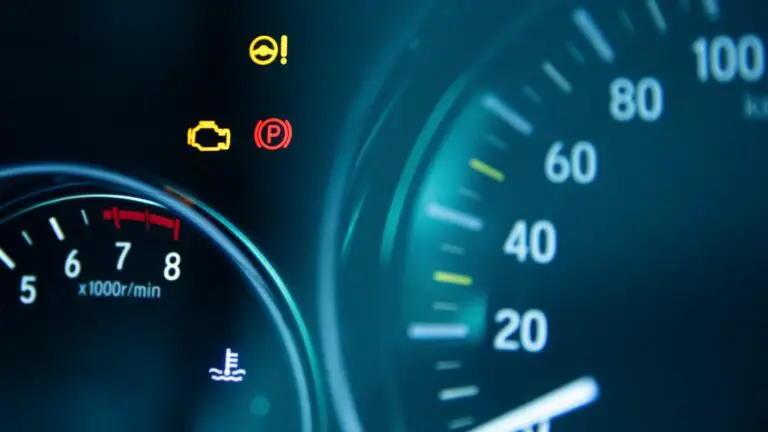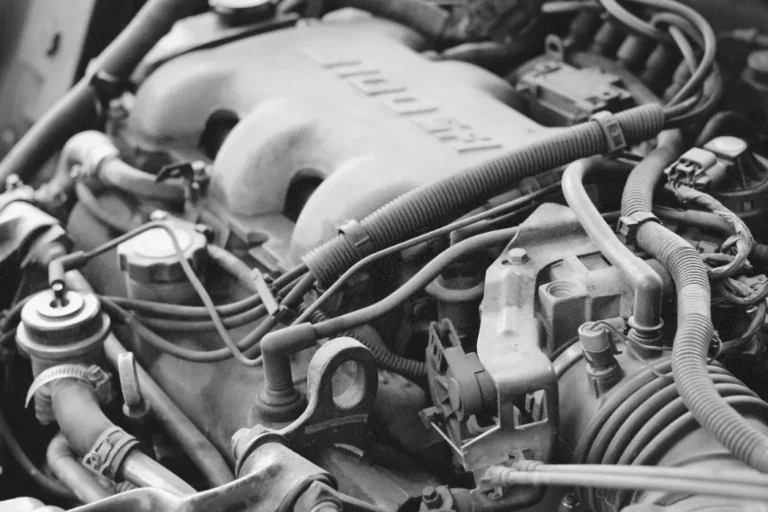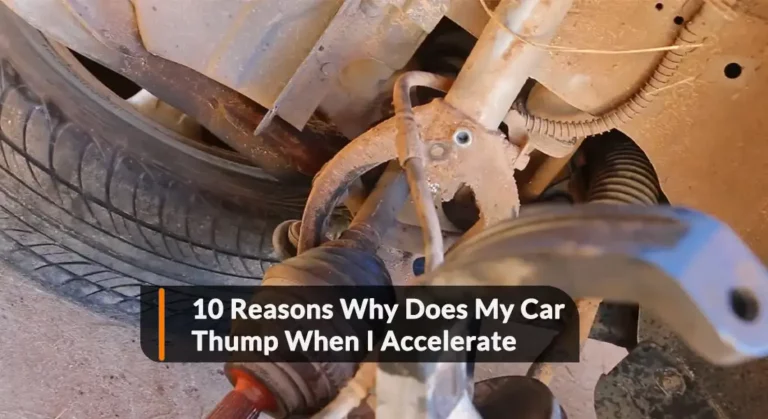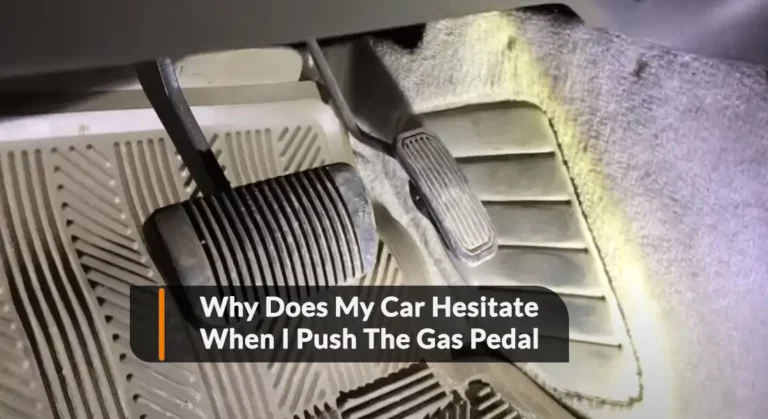Why Does My Mpg Keep Going Up And Down? Explained!
Have you ever noticed that your MPG (miles per gallon) fluctuates despite driving the same distance? This is incredibly upsetting if you’re trying to save money on gas.
In this article, we’ll examine why your MPG fluctuates and what you can do to maintain consistent fuel efficiency. By the end of this article, you’ll better understand how to optimize your driving habits and vehicle maintenance to save money on gas.
Why Does My MPG Keep Going Up And Down?
There are two primary reasons your MPG fluctuates, driving condition and vehicle condition. And these include,
- Driving habits
- Road conditions
- Vehicle maintenance
- Fuel quality, etc.
Monitoring your MPG and identifying changes is critical for optimizing your driving habits and vehicle maintenance for consistent fuel efficiency.
MPG measures the distance your vehicle can travel on a gallon of fuel. It’s calculated by dividing the number of miles driven by the amount of fuel used. For example, if you drive 300 miles on 10 gallons of fuel, your MPG would be 30.
Read Also: What To Do When Check Engine, VSC, And Trac Off Warning Light Comes On?
MPG Keeps Going Up And Down: Causes
As mentioned earlier, the causes are divided into two groups: Driving conditions and vehicle conditions. Let’s now look at factors that might cause MPG to fluctuate.
Driving Conditions
Here is how different driving conditions affect your MPG and why it might fluctuate.
City Driving
This involves frequent stopping and starting, which can decrease your MPG. And this is because your vehicle uses more fuel when accelerating from a stop than maintaining a steady speed.
Additionally, driving at lower speeds in city traffic can decrease your MPG, as your engine is less efficient at lower speeds.
Highway Driving
Driving on a highway can improve your MPG, as your vehicle typically operates at a consistent speed for extended periods. However, driving at high speeds on the highway can decrease your MPG, as your engine has to work harder to maintain those speeds.
Driving Habits
Understanding how your driving habits impact your vehicle’s fuel efficiency is essential for achieving better gas mileage and saving money on fuel costs. Here is how different driving habits may make your MPG go up and down.
Speeding
Driving at high speeds, especially on highways, can reduce your MPG significantly. This is because the faster you drive, the more wind resistance your vehicle encounters, requiring your engine to work harder to maintain speed.
According to the US Department of Energy, every five mph above 50 mph equals paying $0.21 more per gallon of gas.
Rapid Acceleration and Braking
Rapid acceleration and hard braking can also reduce your MPG. This is because these driving habits require more energy to operate your vehicle, which can increase fuel consumption. To save fuel, try to accelerate and brake gradually and smoothly.
Idling
Idling your vehicle can also reduce your MPG. You consume fuel without moving when you leave your engine running in the park or stop at a red light.
This can significantly reduce your MPG over time. Instead, turn off your engine if you’re parked or waiting at a red light for over a minute.
Driving Style
For example, if you’re an aggressive driver who weaves in and out of traffic, you consume more fuel than a more relaxed driver. Similarly, if you have a heavy foot and accelerate quickly, you are likely consuming more fuel than a driver who accelerates gradually.
Route Planning
Choosing the most direct route to your destination and avoiding congested areas can help conserve fuel. Furthermore, organizing your excursions beforehand allows you to consolidate many tasks into one journey. And that reduces the time you spend traveling and conserving gasoline.
Cargo and Weight
Carrying heavy cargo or weight in your vehicle reduces your MPG. This is because the extra weight requires more energy to move, which can increase fuel consumption. Additionally, carrying cargo on the roof of your vehicle can increase wind resistance, lowering your MPG even further.
Road Conditions
Driving on rough roads, hills, and unpaved surfaces can reduce gas mileage. If you regularly drive on hilly terrain, you may notice that your MPG fluctuates more than when driving on flat terrain.
Vehicle Condition
Here are common car problems that may cause your MPG to keep going up and down.
Damaged or Blocked Fuel Injectors
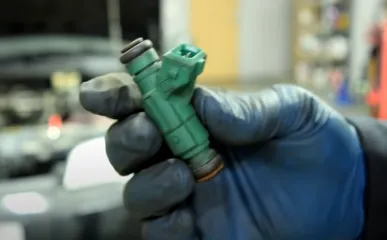
If your fuel injectors are damaged or blocked, they may not be able to deliver the proper amount of fuel to the engine. This can cause a decrease in fuel efficiency and engine performance.
Read Also: Fuel Gauge Reads Empty When Full
Solution
Clean your fuel injectors or replace them if damaged.
Old Engine Fuel Filter
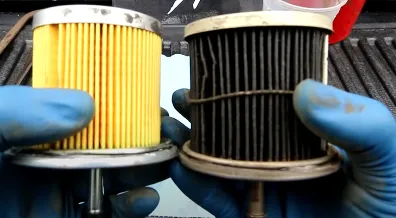
A fuel filter that is old and clogged can also decrease fuel efficiency. This is because a clogged filter can restrict fuel flow to the engine, causing it to use more fuel to compensate.
Solution
Replace your fuel filter at regular intervals, typically every 30,000 to 50,000 miles.
Dirty Oxygen Sensor
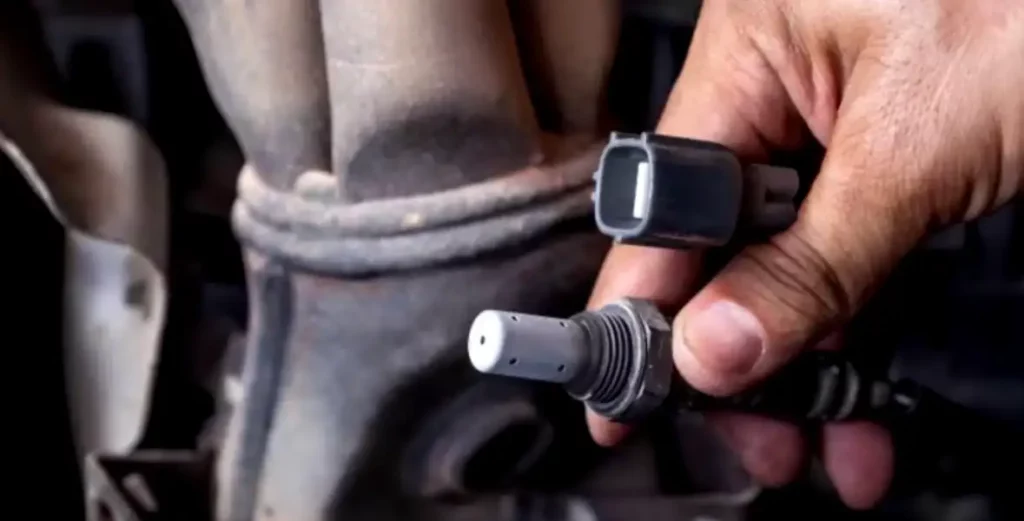
The oxygen sensor in your vehicle’s exhaust system monitors the air-to-fuel ratio in the engine. If the oxygen sensor becomes dirty or fails, it can cause inaccurate readings, leading to an imbalanced air-to-fuel ratio.
This can cause the engine to burn more fuel than necessary, decreasing fuel efficiency and increasing emissions.
Solution
Clean your oxygen sensor or replace it if damaged.
Filthy Mass Airflow Sensor
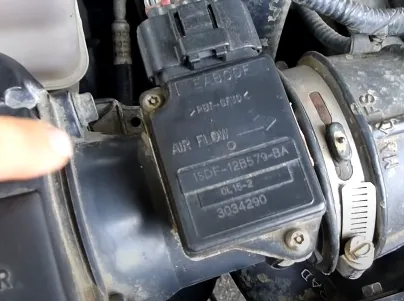
Another common mechanical issue that can reduce fuel efficiency is a clogged Mass Airflow (MAF) sensor. The MAF sensor measures the air flowing into the engine and sends that information to the vehicle’s computer, which adjusts the fuel delivery accordingly.
Suppose the MAF sensor becomes dirty or contaminated; it may be unable to accurately measure the amount of air coming in. This results in inefficient fuel delivery.
Solution
Clean your MAF sensor or replace it damaged.
Clogged Air Filter
If your air filter becomes clogged with dirt and debris, it can restrict the airflow to the engine, causing it to use more fuel to compensate.
Solution
If clogged, clean it. Also, replace your air filter regularly, typically every 15,000 to 30,000 miles.
Faulty Spark Plugs
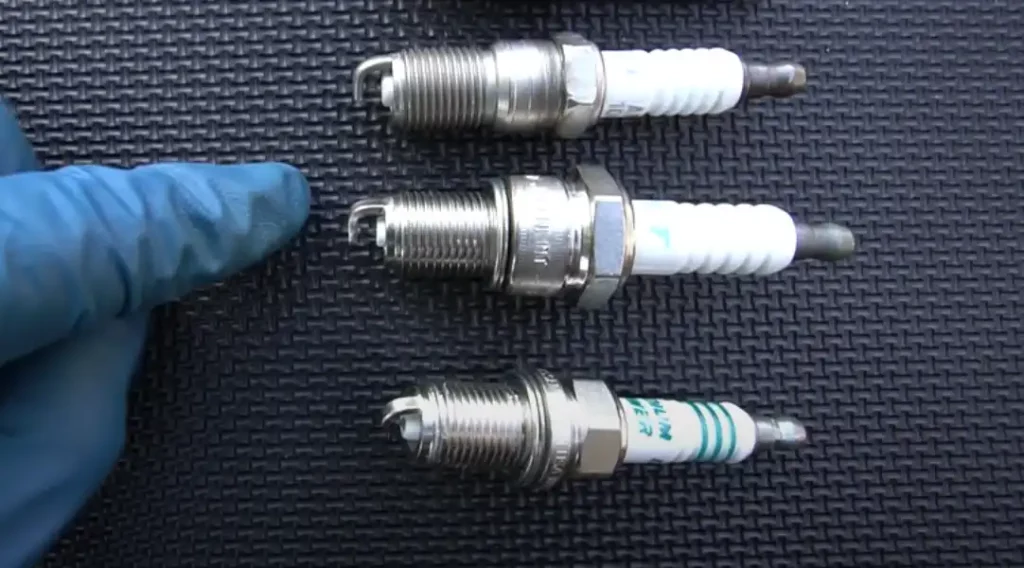
If your spark plugs are worn or damaged, they may not be able to provide a consistent spark to ignite the fuel in the engine. This can cause a decrease in fuel efficiency and engine performance.
Solution
Replace worn spark plugs(our pick). Also, remember to replace your spark plugs at regular intervals, typically every 30,000 to 100,000 miles.
Read Also: Brakes Locked Up While Parked: Causes, Symptoms, and Solutions
Damaged Exhaust
If your vehicle’s exhaust system is damaged or leaking, it can cause a decrease in fuel efficiency and engine performance. Other parts that might be damaged are the catalytic converter and mufflers. A damaged exhaust system can cause increased back pressure, reducing the engine’s efficiency.
Solution
Repair any leaking parts, and replace the catalytic converter and mufflers if they are damaged beyond repair.
Tire Issues
Finally, tire issues can also impact your vehicle’s fuel efficiency. If your tires are underinflated, worn, or misaligned, it can cause your car to use more fuel than necessary.
Solution
Ensure your tires are correctly inflated, regularly rotated, and replaced when worn. Additionally, aligning your wheels can help improve your vehicle’s fuel efficiency.
Here is a video to help you understand what we discussed above.
Fuel Quality
Low-quality fuel or fuel contaminated with impurities can reduce your MPG. Low-quality fuel may burn less efficiently, resulting in increased fuel consumption.
Additionally, using a higher octane fuel than recommended by the manufacturer of your vehicle can reduce your MPG. This is because higher-octane fuels are designed for high-performance vehicles and may not be compatible with the engine in your car.
Weather Conditions
Extreme weather conditions can also have an impact on your MPG. Cold weather, for example, can reduce your MPG because your engine requires more fuel to operate when it’s cold. Driving in strong winds can also reduce your MPG because your vehicle must work harder to maintain speed.
Frequently Asked Questions (FAQs)
Here are other related questions.
Can weather affect MPG?
Yes, extreme temperatures, high winds, and precipitation can affect MPG. Cold temperatures can cause the engine to work harder to warm up, while high winds can create resistance that makes the engine work harder.
Does using my AC lower my MPG?
Yes, using the air conditioning system in your vehicle can reduce your MPG. This is due to the additional load placed on the engine by the AC compressor, causing it to work harder and consume more fuel.
Consider rolling down the windows instead of using the AC if driving at slower speeds or in stop-and-go traffic. When using the air conditioner, try to set the temperature to a moderate level rather than blasting it on the coldest setting. This can help reduce engine strain and save fuel.
Conclusion
There are several reasons why your MPG may fluctuate. It’s critical to address the problem immediately to avoid decreased fuel efficiency and potential mechanical issues. Whether it’s due to your driving habits, or vehicle maintenance, there are steps you can take to improve your MPG and keep your vehicle running smoothly.
By following the tips and advice in this article, you can ensure that your vehicle is performing optimally and getting the most out of every gallon of fuel. Remember that regular maintenance and attention to detail are essential for keeping your car running efficiently and reliably.
Related Posts:

